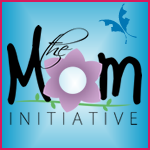Obviously, the first step to getting published is to write…then rewrite…then rewrite again, and again, and again. You want to put forth your best effort. First, or even early drafts are NEVER best effort. I've talked about that a couple times on this blog, here and here, and probably in a few other posts as well. But what do you do once you've reached "ready"?
Query.
Now, with magazine articles or other periodicals or nonfiction books, you don’t always have to have the entire piece written beforehand. This is good news! If you have an idea for an article but haven’t written it yet, you can submit a query letter and hope the editor then asks you to write it. Keep in mind, though, first drafts of query letters are NEVER best effort, either. So, it’s very important to take time to edit yourself and look for ways to improve the piece. Have others read it and give their suggestions. Participating in a writers’ group is very beneficial. I would not have gotten my first article published if not for the gentle wisdom of my writers’ group peers.
So what is a query letter? It is a one-page letter used to get an editor or agent interested in your idea. When you query magazines, you’re trying to get the editor to buy your article or idea. When you query book publishers and agents, you’re trying to get the editor or agent interested enough to request a full proposal or the entire manuscript. It’s basically a sales pitch, and it needs to be very well-written.
Writer’s Market, put out annually by Writer's Digest Books, contains a query letter clinic which gives examples of good and bad queries and details what made each good or bad. According to their experts, a successful query letter consists of four key components: Be as sharp and concise as possible.
1) Author’s authority/qualifications: The author's authority is simply your expertise. The editor might like your idea, but why should he trust you to write it? What makes you the person to write this article?
2) The need for this book/article: Why do readers need this information? In this information age, it's relatively easy to get answers to pretty much any question, so why should this editor print this story?
3) Specifics about the book/article/story/idea: Ok, here is where you tell the editor what your article is about. Here is your hook. In ONE sentence, in a very interesting and appealing way, summarize your idea. This takes practice. In fact, I've had writers bring one-sentence summaries to critique meetings and work on that one little sentence the entire time.
4) Suggested word count: This is self-explanatory. Tell how long you anticipate the finished article to be. Please be sure to check the publication's writer's guidelines before you query! You want to make sure your topic is a good fit, but you also need to know what they expect, their word count limits, formatting, etc.
As I mentioned in a previous post, always be formal and professional. Address the editor by name (Mr. or Ms.), and make sure your name and contact information are complete. If mailing by snail mail, be sure to sign your letter. Editors and agents receive several hundred submissions each week. You want your letter to stand out because it is well-written and your idea is well-presented. Fancy fonts and pretty stationery are unprofessional and will usually land your submission in the garbage. Small details, like misspelling the agent’s name or mixing up your words (i.e. I’ve written a nonfiction novel… huh?) make a poor impression and can quickly lead to rejection.
Are you ready? Get set. Query!
Psalm 18:26-50
-
Today’s Scripture: Psalm 18:26-50 Mary is reading Psalm 18:26-50 in the
WEB. Access Pray Every Day every single day on the Pray Every Day App!
Not only c...
16 hours ago





















3 comments:
That was a very helpful and instructional post. Thank you.
Great information, thanks for sharing. Thanks for stopping by my blog and commenting. Alas, I am not a Gilbert. Suzie Gilbert is an author whose book I reviewed and she did a guest post for me.
http://squirrelqueen2.blogspot.com/2010/03/guest-post-by-suzie-gilbert.html
Have a great weekend.
Ah! Well, Gilbert or not, it's still nice to meet you! Thank you both for stopping by. I hope this post was helpful!
Post a Comment
I'm so glad you stopped by!